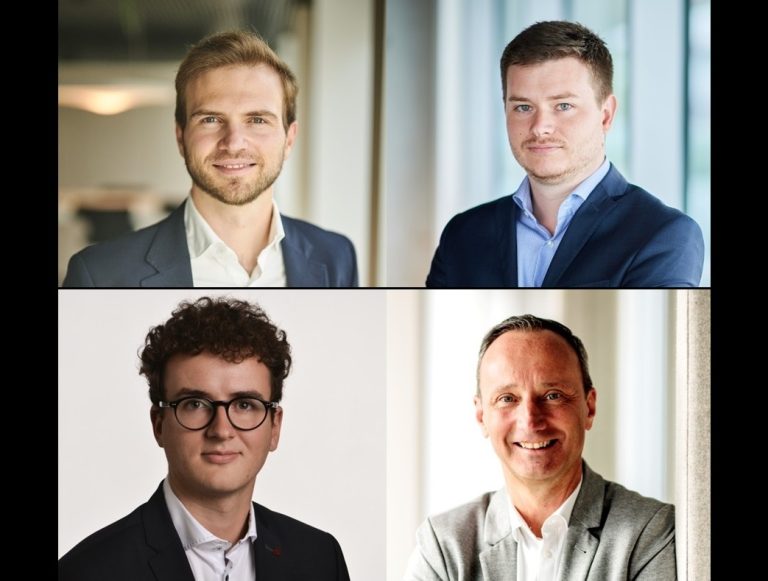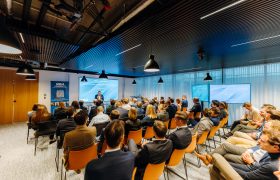How AI is disrupting M&A due diligences

By Maxime Dolphin, Christophe Bahim, Vincent Feremans and Xavier Verhaeghe
(Gen)AI serves as a catalyst for deal-making, streamlining transaction processes and generating substantial commercial value within organisations: Amidst a substantial 50% dip in global M&A activity from its 2021 peak, 2024 emerges as an important year marked by transformative trends, as unveiled by Gartner Inc.
Technology Due Diligence: Assessing the increasing role of smart digital capabilities in M&A transactions
Executives are strategically re-entering the transactions market, placing a renewed focus on the value of technology mainly caused by the emergence of Artificial Intelligence (AI), which is disrupting business as we know it. This technology is not only creating a need for companies to build AI-centred M&A strategies and emphasise their AI capabilities in a transaction, but also enhancing the entire M&A process itself.
In that context, technology due diligence is a critical process conducted in business transactions, offering stakeholders a deep dive into an organisation’s technological footprint. This comprehensive assessment aims to identify potential risks and uncover opportunities for improvement by evaluating:
• Overarching technology strategy and organisation
• IT & OT systems
• Digital capabilities and platform(s) roadmap
• Interoperability and scalability potential
• Data management and data security measures
By providing a clear understanding of a target organisation’s technological capabilities, this diligence empowers investors, acquirers, and business owners to make informed decisions, negotiate effectively, and plan seamless post-transaction integrations or carve-outs.
This being said, we observe the rising importance of AI-related assessments in the context of technology due diligence and other M&A phases where organisations are willing to position their AI capabilities as an accelerator of business value. From a technological perspective, we assess at the same time the technical solution of the AI component, as well as how it optimises business processes to unlock additional benefits for the organisation.
AI emerges as the core of an organisation’s digital capabilities, driving tangible business value
The incorporation of Generative Artificial Intelligence (GenAI) into organisations brings forth a new era of efficiency and innovation by automating complex tasks, providing advanced analysis of large documents, stimulating ideas and enhancing the quality of written texts to name a few.
Over the next year, as stated in PwC’s 27th Annual Global CEO Survey, about half of CEOs expect GenAI to enhance their ability to build trust with stakeholders, and approximately 60% anticipate an improvement in product or service quality, increasing competition in their respective markets. If organisations want to identify all optimisation opportunities where AI or other digital capabilities can generate sustained added value, a thorough alignment between the IT department and business will be necessary.
In the face of macroeconomic challenges, GenAI provides strategic opportunities for executives to capitalise on technology M&A opportunities. Well-capitalised enterprises leverage this trend by pursuing acquisitions of smaller technology-focused businesses that offer the competitive advantage they are looking for, emphasising the importance of a technology due diligence. During the due diligence process, we will assess the capabilities to objectively describe them, securing trust between the buyer and the seller.
Nowadays, at the core of these digital capabilities (i.e. process automation, GenAI, ESG, etc.) lies the active data lifecycle management considerations. Data has become increasingly important for organisations to extract valuable insights about their business and customers, keeping businesses thriving. Our technology due diligence approach always include a sound analysis of the data management capabilities of an organisation, even covering topics such as data (cyber-) security and data privacy (i.e. GDPR). It provides our clients with the required insights, enabling them to make informed decisions.
Accelerating deal reviews with AI: A focus on quality over speed
As deal reviews become increasingly complex, the exploitation of emerging technologies such as GenAI becomes more crucial for M&A consultants in helping them conduct their assessments during a due diligence. GenAI will elevate the quality and progress of these assessments by analysing very complex and time consuming documents such as:
• Contract analysis: AI can automate the review and analysis of contracts and legal documents, identifying key terms, obligations, and potential liabilities. This can accelerate the contract review process, reduce legal costs, and ensure compliance with regulatory requirements.
• Financial records: GenAI detects anomalies, trends, and irregularities. It assists in assessing the financial health of the target company.
• Tech stack: Mapping the technology infrastructure of the target business, identifying outdated systems and cybersecurity vulnerabilities, and areas of improvement.
• Etc.
By leveraging GenAI and advanced tools capable of big data analytics and machine learning, we gather new perspectives into a company’s operations, market standing, and growth potential. AI goes beyond being just a trend. It is a key enabler for growth and success in this era of technological disruption. It is a lasting and self-improving asset which is transforming the way we work as we speak. Not by replacing the human involvement in any kind of deal, but by enhancing it as a valuable assistant which pinpoints red flags and which enables consultants to focus on the strategic conclusions.
For more information, do not hesitate to visit our website to gain further insights on technology due diligence or reach out to our team directly so we can team up to create and capture the value arising from digital capabilities.
Authors
Key Author Maxime Dolphin – Senior Manager PwC
Christophe Bahim – Manager PwC
Vincent Feremans – Associate PwC
Xavier Verhaeghe – Partner PwC








